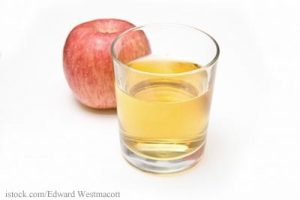 State health officials have found E. coli O111 in a sample of apple juice from High Hill Ranch establishing a link to an outbreak that has sickened 13 people with the same strain. El Dorado health officials have compiled a time line that should clear up some of the confusion surrounding the outbreak.
State health officials have found E. coli O111 in a sample of apple juice from High Hill Ranch establishing a link to an outbreak that has sickened 13 people with the same strain. El Dorado health officials have compiled a time line that should clear up some of the confusion surrounding the outbreak.
After the illnesses were reported, owners of the ranch issued a statement suggesting that visitors to ranch contaminated the sample jug with a virus that was the source of the illnesses. But E. coli isn’t a virus, it’s bacteria that lives in the intestines of animals and is shed in their feces. It causes illness when food or beverages contaminated with microscopic amounts of fecal matter containing the bacteria are ingested. That’s what happened at High Hill Ranch in October.
Here is the timeline of events that El Dorado County health officials compiled.
On October 23, 2015, seven cases of E. coli infections are reported among residents of Sacramento County who consumed unpasteurized apple juice either sampled at or purchased from High Hill Ranch between October 10 and October 12, 2015.
High Hill Ranch issued a recall and discontinued the processing, sale and distribution of unpasteurized apple juice, selling only flash pasteurized apple juice produced and bottled by another local vendor.
On October 29, 2015, the California Department of Public Health (CDPH) reported that more illnesses had been reported bringing the total to 13, five of them were lab-confirmed infections of E. coli O111.
On October 30, 2015, High Hill Ranch told county health officials had they had submitted samples of unpasteurized apple juice to an independent laboratory for testing for E. coli 0111. The samples were from a production run after the suspected processing period associated with illnesses.
On November 4, 2015, CDPH told county officials that a sample of unpasteurized juice obtained from a case patient’s home had tested positive for E. coli 0111.
On November 5, 2015, CDPH told county health officials that all samples collected from High Hill Ranch on October 21, 2015 by CDPH were negative for the presence of E. coli 0111.
Symptoms of E. coli food poisoning include severe abdominal cramping and diarrhea that can be bloody. These symptoms usually develop one to four days after exposure and last up to 10 days. Those most at risk are children, seniors, pregnant women and those with compromised immune systems. These groups are also at greater risk for more severe infections and complications that can develop.
Children with E. coli infections are at risk for a life-threatening complication called hemolytic uremic syndrome (HUS) which causes kidney failure, seizure, stroke, coma and death. HUS, which often targets children, usually occurs a week or more after the onset of diarrhea.
Unpasteurized drinks are a common source of food poisoning outbreaks. One of the largest linked to apple juice was in 1996, when an E. coli outbreak was linked to Odwalla juice mixtures which were unpasteurized at that time. One batch of apple juice was made with bruised fruit. Sixty six people were sickened, at least 12 of them developed HUS, one of them died. Most of those who became ill were small children. The average age of most of those who were sickened was 5.
Odwalla issued a nationwide recall of all its products containing tainted apple juice. Since that time, the company has pasteurized its juices. But not all producers do.
When unpasteurized juices are sold at grocery stores, farmers markets or other stores, they are required to to be marked with the following: “WARNING: This product has not been pasteurized and therefore may contain harmful bacteria that can cause serious illness in children, the elderly, and persons with weakened immune systems.” If they are purchased, they need to be kept refrigerated.
The U.S. Food and Drug Administration does not require this warning label for juice or cider that is fresh-squeezed and sold by the glass at orchards, farmers markets, roadside stands, or in some restaurants or juice bars. Consumers who stop at roadside stands, markets or juice bars where beverages are sold by the glass should ask if it has been pasteurized.




